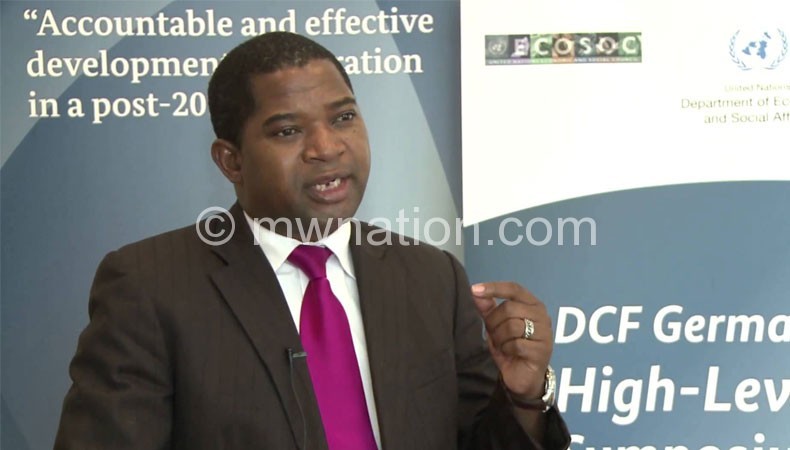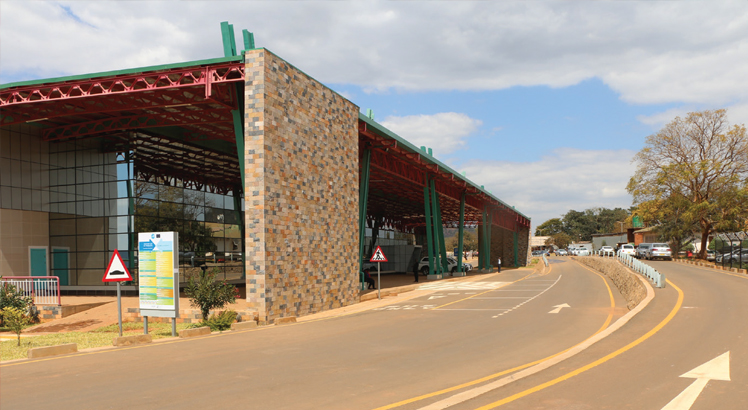Information gap blamed for Malawi’s high default rates

Malawi Government and a local Credit Reference Bureau (CRB), Credit Data, have said apart from prohibitive interest rates, information gap is responsible for the high default rates prevailing in the country.
Speaking when he officially opened the country’s first credit symposium which was hosted by Credit Data, a local credit reference bureau, chief economic advisor to the President Collins Magalasi said access to credit must be sustained because the less people access credit the more they rely on government.
He pointed out that consequently less jobs and taxes are produced thereby overburdening the government.
“Sadly in Malawi, the banking sector is saddled with non performing loans. One of the catalysts in this scenario were serial defaulters who borrowed from various banks with no intention of repaying the loans. These defaulters thrived in the information asymmetry environment that prevailed due to lack of a credit information sharing mechanism.
“It is with this reality in mind that the government enacted a Credit Reference Bureau Act in 2010 to govern the licencing, operation and supervision of CRBs in Malawi,” said Magalasi.
He added that the government is investigating why credit bureaus are not fully operational arguing that they are important in any financial system because information asymmetry exists between lenders and borrowers.
Making her presentation, Credit Data managing director Patricia Mwase said there are a number of factors that impinge on access to credit including high interest rates, perception and corruption.
“Some factors are financial including prevailing high interest rates and no grace period, and pride because some people look at borrowers as failures,” said Mwase.
She also pointed out that corruption which also ends up disadvantaging the borrower is responsible for poor access to credit.
Speaking on the sidelines of the symposium in an interview, Mwase pointed out that corruption and unnecessary business politics is responsible for the poor performance of CRBs in Malawi.
She pointed out that at the moment their bureau is sitting on 800 000 credit records with about 95 percent of the information being defaulters.
According to authorities, Malawi financial system has been grappling with high default rates against a background of prohibitive lending rates.
The Reserve Bank of Malawi (RBM) in the April 2014 Financial Stability Report said that non performing loans increased in April 2014 from 15.4 percent in December 2013 to 15.7 percent due to high interest rates that have been prevailing in the banking system.






Credit reference Bureau plays a vital role for credit providers to assess the applicants risk grading. Unfortunately as I have argued on many forums the main issue that has attributed to these problems is lack of national identity document. For instance if I apply for credit using my drivers licence as my ID at bank A & then go to apply for another credit facility at bank B using my passport as my ID what are the chances of these two banks knowing they are dealing with the same person who may have defaulted on his existing loan with another institution ?
I still fail to comprehend till now how can govt not priotise getting the ID rolled out. This has also been one of the reasons why we are failing to meet our development goals as most of the planning our govt does is based on estimated figures not actual data.
I can understand also why banks are charging such exorbitant interest rates as to be honest the market they are dealing with is really high risk. without concrete data each bank will be pricing their product for risk as a result all applicants will be painted with the same brush unless you have an existing credit facility with the bank and they can establish your behavioural scoring based on your conduct of the existing or previous loan you were granted.
without viable & sustainable credit extension we might as well forget about building a growing & sustainable economy.
credits are there to build businesses. The more businesses ( small or big) the more people the private sector employs the wider our tax base will be and that can only mean one thing – more revenues to be collected by the Malawi revenue authority in the form of PAYE
We don’t want CRB to be there for the sake of being there but to assist our credit providers to manage their risks as they will know who they are dealing with and they will only know that if we all have our ID numbers therefore credit pricing will be based on individual credit profiles
Mr Kondowe,That is a good observation,that is the whole reason it would have been crucial for you to attend the symposium as these issues were discussed and a resolution was made as how to move forward on this important issue.Look out for the papers as Credit Data the host will be producing a statement on what was discussed and agreed and your further comments will be welcomed.
Thank you for commenting .
I would really have Loved to attend but unfortunately I am not in the country but I will keep an eye on any further statements relating to this issue.